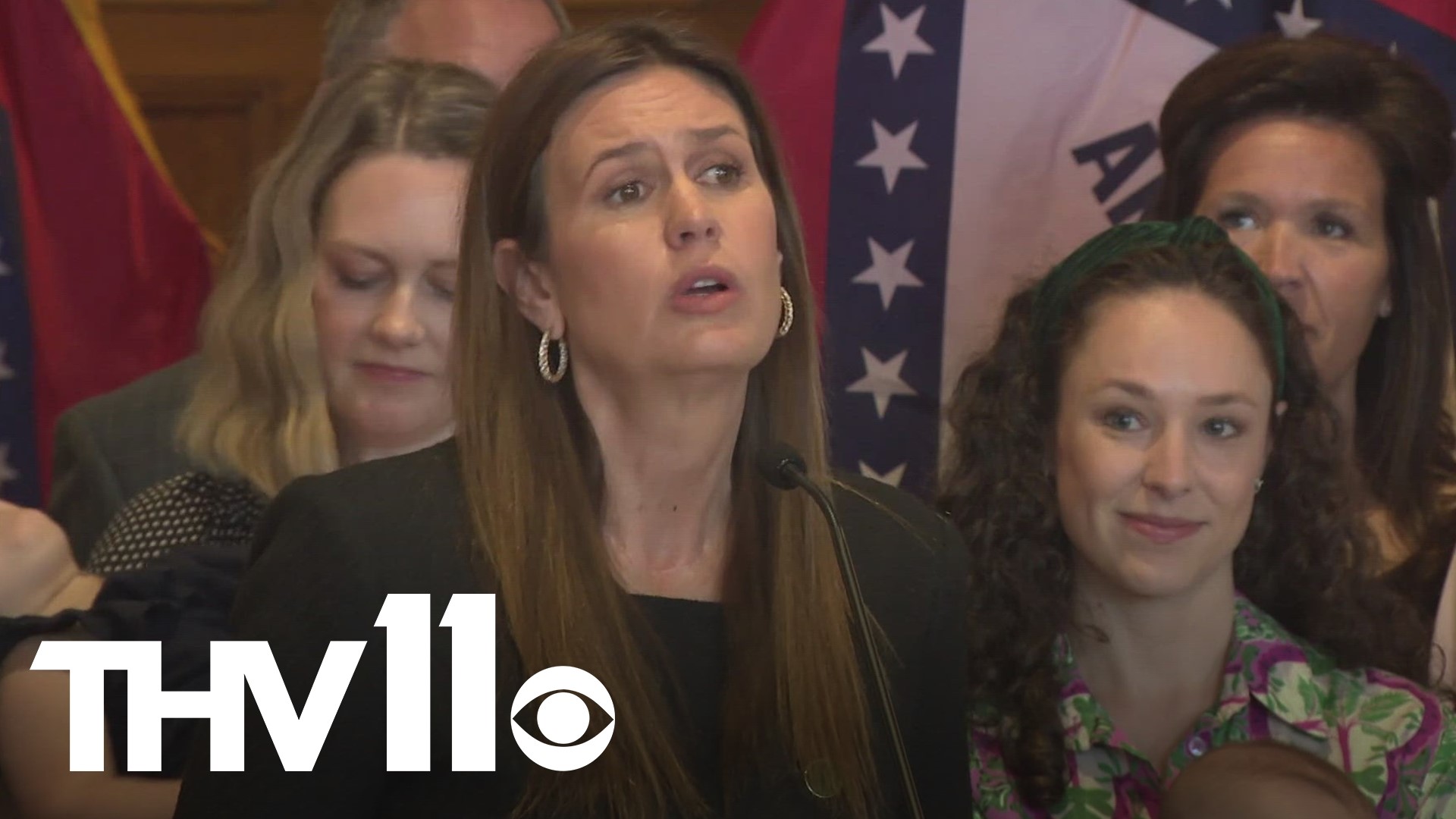LITTLE ROCK, Ark. — Gov. Sarah Huckabee Sanders signed an executive order Wednesday morning to establish a new group focused on Arkansas's maternal health issue, as the state has the highest maternal death rate in the nation.
State leaders plan to change that statistic through the Arkansas Strategic Committee for Maternal Health.
The announcement comes just two weeks after Sanders participated in a roundtable discussion at UAMS with doctors and other officials about the ongoing issue and how the state can do better.
The Arkansas Strategic Committee for Maternal Health is already at work.
"One of my administration's top priorities is helping Arkansas women have the healthiest pregnancies possible," Sanders said. "That is a critical issue in our state."
Through the new committee, ADH, DHS, the Surgeon General's Office and others plan to tackle that problem.
Sanders said the plan focuses on four points:
- Increasing access to quality maternal health services
- Improving education regarding women's and maternal health
- Improving maternal health before, during and after pregnancy
- Improving statewide coordination for maternal health data and reporting
The plan doesn't include expanding Medicaid coverage beyond 60 days postpartum.
"The solution is not more government programs," Sanders said. "The solution is getting women to take advantage of the programs that we already have."
DHS Secretary Kristi Putnam said the executive order will help women and families realize their options.
"The discussion around providing 12 months of postpartum coverage has been a national talking point," Putnam said. "For Arkansas, however, we do provide access to health care coverage beyond that 60-day postpartum period. What we don't do and what this executive order will help change is ensure that women and their families are aware of their options before that 60-day period ends... The easy thing to do would be to say yes to adding an additional 10 months to the end of the 60-day postpartum period and check the box. To date, we have not identified any true gaps in coverage, so adding this would be duplicative and not the best use of resources."
Additionally, Putnam said the state needs to do a better job of connecting women to continuing coverage.
"Either through regular Medicaid, expanded Medicaid through ARHOME, or if their income has increased through a low-cost subsidized health plan on the federal health care marketplace," Putnam said.
According to Sanders, it's an educational issue, not a coverage problem.
"Of the 35,000 pregnancies in Arkansas each year, 10,000 women wait until they're after their first trimester to even see a doctor," Sanders said. "1,100 women never see a doctor until they are in labor... healthier moms mean healthier babies. If women aren't in contact with a health care provider through the duration of their pregnancy, and in the months after, they are at greater risk for complications."
Some of the following steps include exploring strategies to expand telehealth, home visiting, doulas, and community health workers and increasing the percentage of women who access prenatal care in the first trimester. Also, developing a multi-agency maternal health education and advertising campaign and creating a pilot program targeting five counties with the lowest rates of prenatal care.
Arkansas Secretary of Health Renee Mallory said that in the next couple of weeks, ADH and the Surgeon General will start having community meetings in Phillips, Crittenden, Scott, Garland and Polk counties to share county-specific facts and data and begin a roadmap for local maternity success.
The committee plans to update Sanders on the plan's effectiveness within the next six months.

